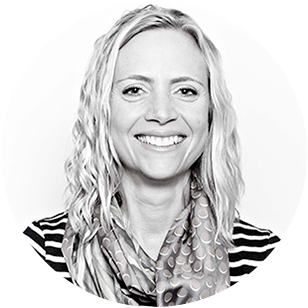INTERVIEW: Chris Solarz, runner of more than 200 marathons
On the pain of 100-mile races: "You're at mile 40, you've run a marathon and a half already, and you're not even half done." Ugh.

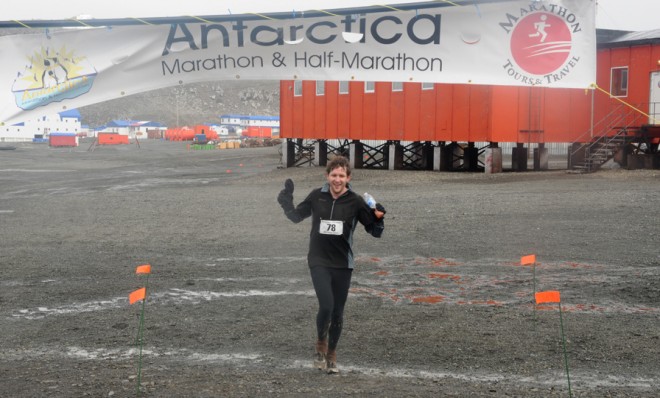
A free daily email with the biggest news stories of the day – and the best features from TheWeek.com
You are now subscribed
Your newsletter sign-up was successful
Chris Solarz is a 34-year-old husband, father, and pension fund consultant with a running resume that will make your jaw drop. The New Yorker has been behind the starting line of more than 500 races that span distances of between one and 100 miles. He has run more than 200 marathons and competed in races that have taken him to more than 40 countries on all seven continents and through 49 of our 50 states. (Sorry, Hawaii.)
I recently spoke on the phone with Solarz. Here's a (slightly edited) transcript of our conversation:
How did you start running?
The Week
Escape your echo chamber. Get the facts behind the news, plus analysis from multiple perspectives.

Sign up for The Week's Free Newsletters
From our morning news briefing to a weekly Good News Newsletter, get the best of The Week delivered directly to your inbox.
From our morning news briefing to a weekly Good News Newsletter, get the best of The Week delivered directly to your inbox.
I've been running for 23 years now. I starting when I was about 12. I was on the junior high school cross country team, and and ever since then I have barely missed a single day of running.
Well, there were two periods when I really didn't run. After my first marathon in 1996, I almost completely stopped running for about three to four months. And the same thing happened after my first 100-mile race. It was so difficult for me and I think it was such a stretch for my body at the time, I just didn't really feel like running for about three months after.
But besides that, I'd have to say that I have run almost every day for the last 23 years.
In the beginning, running for me was all about speed and winning and trying to really perfect the race. But after college, things changed. I wasn't trying to be as competitive anymore, and I realized I loved a whole different aspect of running — the pure pleasure of being outdoors and being one with your body. I just really enjoyed the art of running. I continued to do a lot of races. I have always enjoyed the energy and excitement of the races. All these people are there for happy, healthy reasons and there's this electricity at the start.
A free daily email with the biggest news stories of the day – and the best features from TheWeek.com
Do you have a special type of method or training?
I think the real strength of my training is that most of my running is really easy and I think that prevents injury. It's not necessarily specific to me. I've done a lot of reading and research and I follow a philosophy that stems from Arthur Lydiard, who is largely considered the father of marathon movement and training.
He basically invented — in the 1930s and 40s — interval training. He coached something like 30 athletes into the Olympics. One of his philosophies is running slow, slow, slow, and then peppering your training at the end with speed drills. There's the famous example where he would train both a miler and a marathon runner with the same base mileage. They would both do over a 100 miles per week for months and months and months. And it was only in the eight to 12 weeks prior to their big event that they would start specializing in their specific race.
The most simple way of putting it is that 80 percent of your miles are done really, really easy. If my marathon pace is a six-minute mile in the race, I do 80 percent of my training runs closer to a nine-minute pace.
Most runners don't run their speed workouts fast enough and they don't do their recovery runs slow enough. They're inefficient.
I have to work on this analogy, but, I have a son who is one and he is learning to walk and he's so inefficient. It's the same thing I see with some beginner runners. They're just not so comfortable in their skin when they run. I think that's what happens when you run more. Your body becomes efficient. You just drop your arms, your legs just fall into place, and your body knows how to protect you from injury because you've been running for months. That's what it is: Spending more and more time on your feet.
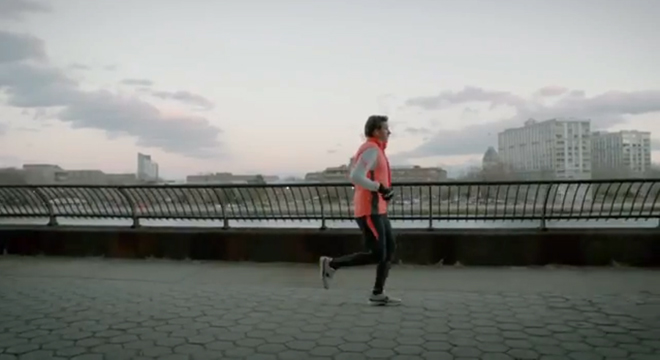
Is there a limit to how much running your body can handle?
I met this Japanese guy who was the CEO of a company. He made a lot of money and now runs marathons all over the world. He's run something like 700 to 800 marathons. But he believes that your body has a finite number of miles it can run. Therefore he doesn't train at all in between races. He thinks that's the best way to prolong his running career. I don't think that's exactly true. But it may be true to a point.
When I'm really in shape and I'm really running, I feel like I can run forever.
But you have to focus a lot more on sleep. In my 20s I did everything. I was running marathons, I was an investment banker working 90-hour weeks, and finding time to run, and finding time to go out. I didn't even realize how tired I was because I could get three to four hours of sleep and it would be fine. It's only been in the past three to four years that I've really been focusing on my sleep. And it's so funny, because I feel so much better. I think for a whole decade I was constantly tired. I didn't even know that wasn't how you were supposed to be.
That's really how my running has evolved. I got more into relaxing and resting. I really don't think there's anything special about my body. I think it's the human body and the potential that everybody has to do these things.
What made me special is that I found this thing that I love and I've been doing it basically every day for 20+ years so I've kind of done the best I can to turn my body into a running machine. I think that if anybody put that kind of time and commitment into it they could do the same thing.
I really don't get a lot of injuries. I think part of it is because of how long I have been running. Part of it is somewhat genetic. I think I'm really lucky to be gifted with some sort of runners body. But it's also about being smart and precautionary and knowing when something could be significant and to stop. A lot of my friends are always injured because they just push through it.
Do you have a favorite race?
I kind of love them all. The 5K I truly love. It's such a beautiful balance of speed and endurance and it's also nice that it's over quickly.
In the marathon you are really just racing yourself. The best way to perform in a marathon is to do the famous marathons — the New York City Marathon, the Boston Marathon — because you get all the excitement, all the build-up, and all the best runners.
For the ultra marathons, just to finish the race is a big deal. And there are so many unknowns. When I do one of these races — I've done six 100-milers — there are so many highs and lows, it's like living a mini life. It takes 24 hours and you can have these really low lows. You're at mile 40, you've run a marathon and a half already, and you're not even half done. You've seen the sun come up and you won't be finished until you see the sun come up for a second time, and you're thinking, "I could be home with my little baby, but instead it's hot and I'm tired and I may not finish." It's a crisis. And then sure enough, I feel so great 18 hours later when I'm finally done and all of that is forgotten.
The ultra marathon simplifies your life because in that 24 hours all I have to do is move forward, eat, and pass the time.
The 5K is just speed and power. The marathon is endurance, planning, and perfect execution. And then the 100-miler is just the unknown.
My two favorite marathons are the New York City Marathon, which I've done 11 times in a row, and the Boston Marathon, which I've done nine times in a row now. I think it's really comforting knowing I'll always be doing those races, hopefully for the rest of my life.
Is there anything surprising about running that you have come to love?
I love the traveling.
When a city hosts a marathon they really showcase the most interesting part and the most beautiful part of the city. To me, it's the most efficient way of going to the city and getting a little tour if you only have a weekend.
I've been so lucky to travel with my wife for races all over the world. We usually pick a vacation based off a marathon and build a trip around it. We went to Easter Island. We ran the Inca trail in Peru. We ran this really cool marathon called the Mount Everest marathon where you run the over foothills in Nepal. That day I won the the men's marathon and my wife won the women's marathon.
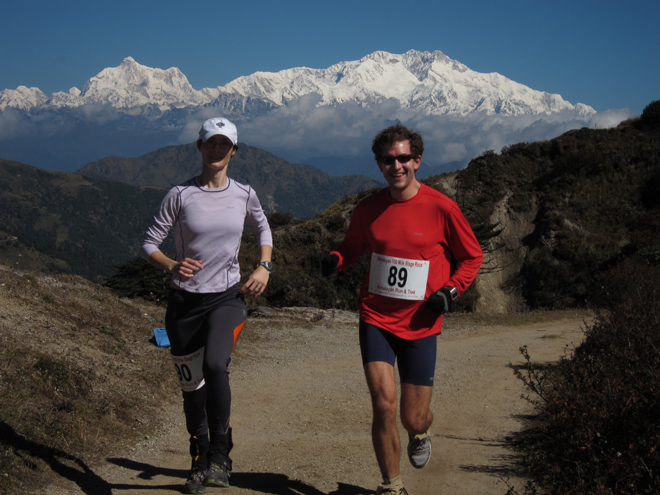
How do you space out your training? How do you fit it in?
I think the real reason I'm able to do so much is having a supportive wife. If I didn't have her being as supportive as she is of my running, it would be a lot harder.
Other than that there's always a balance that you can strike. If you truly want to run a race, you can figure it out. I religiously prioritize. It's no coincidence that all of my friends are runners and it's probably because of our common love of running that we've been able to continue the friendship after all these years.
Doing 20 marathons a year I think is actually really easy in one sense because that's a race every three weeks. That's the long run for the next marathon. You're perpetually in shape. I don't actually race 20 marathons a year. I probably race one a year or two where I really put everything into it. But most of these runs are just training runs, so I'll run it in four or five hours.
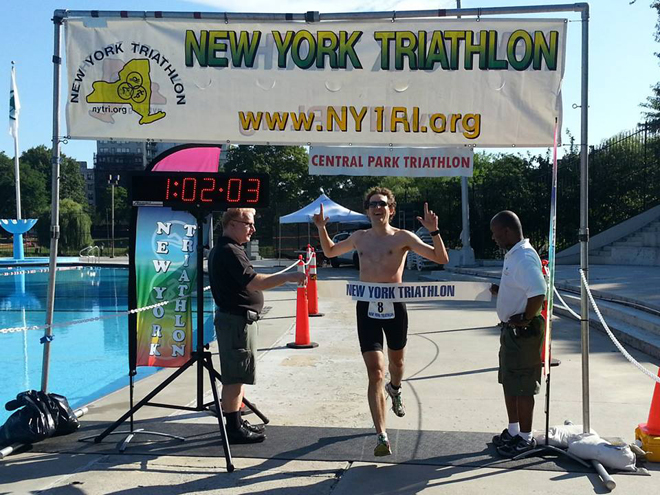
Do you have any recovery tricks?
In college I used to try the ice baths and things like that. Now everyone is using these compression socks. And I just don't really buy any of it. I think the best recovery really is to sleep.
I do like an active recovery. I think it really helps to get the blood flowing after a hard run. An easy run for me on a day when I'm wasted from running, I'll run 12-minute miles, almost like a fast walk. I think those are really beneficial for keeping the blood flowing. I've just totally simplified things.
What about diet?
I've been a vegetarian my whole life. And I've almost been vegan over the past three years. I call it a "practical vegan." When I'm traveling if I'm in London for work, for example, it's simply not possible. But, when I'm cooking at home I never eat cheese or butter and I just feel better for it. I think it's an easy way to purify your diet. I eat quite well and do my best to keep it really simple.
Scott Jurek is one of the best ultra marathon runners in the world and he has a New York Times bestselling book called Eat and Run. His whole angle is being vegan. He and a couple of other guys really got out there and proved to the world you don't need read meat. Here he's done some of the most impressive races as an ultra runner and he's done it as a vegan. I think that people are embracing that a lot more now.
Any last bits of advice for people trying to get into running?
I think running with a team or with a friend is the best way to stay motivated. And also to have a goal. But nothing gets you out of bed at five in the morning like having a friend who is waiting for you in Central Park.
I do think that people run too fast all the time. They put pressure on themselves to run faster.
My catch would be to run with a friend and moderate your intensity. Run fast on the fast days and slow on the slow days.
Lauren Hansen produces The Week’s podcasts and videos and edits the photo blog, Captured. She also manages the production of the magazine's iPad app. A graduate of Kenyon College and Northwestern University, she previously worked at the BBC and Frontline. She knows a thing or two about pretty pictures and cute puppies, both of which she tweets about @mylaurenhansen.
